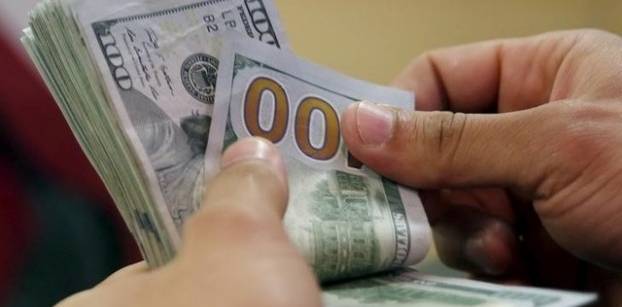Egyptian central bank lets banks allocate more dollars to clients - bankers

A customer counts his U.S. dollar money in a bank in Cairo, Egypt March 10, 2016. E REUTERS/Amr Abdallah Dalsh/
CAIRO (Reuters) - Egypt's central bank has told banks they may allocate dollars to a wider range of clients, according to bankers, potentially making hard currency available to foreign companies seeking to repatriate earnings after months of delays.
Egypt's central bank abandoned its currency peg of 8.8 pounds to the U.S. dollar on Nov. 3 in a move aimed at unlocking dollar inflows and restoring the confidence of foreign investors driven away by political instability after the 2011 uprising.
Dwindling foreign reserves and a gaping trade deficit had prompted the central bank to ration dollar supplies through regular auctions. Banks were forced to prioritise essential goods such as medicine, wheat and raw materials.
Importers of non-essential items had to resort to the black market for dollars, where they paid much higher rates.
The rationing along with capital controls imposed in early 2015 meant foreign companies were unable to repatriate profits and companies struggled to open credit lines, resulting in a backlog of dollar orders estimated by bankers at $10-15 billion.
"There are clients who are desperate to address their temporary overdrafts and repatriate dividends and will buy dollars at any rate," said one banker.
When it announced early this month that it was floating the Egyptian pound, the central bank said its priority list for imports had been abolished and banks could allocate dollars to clients at their own discretion.
But bankers said at the time the central bank had verbally asked them to prioritise companies seeking dollars for imports of essential goods, and split any surplus foreign currency between non-essential imports and interbank trade.
Seven bankers told Reuters the central bank had given them the nod to widen dollar allocations.
Once they have fulfilled demand from importers of essential goods, banks are now allowed to allocate half their remaining dollars to business clients seeking to cover temporary overdrafts, repatriate earnings or meet other needs.
"The central bank yesterday told us we could use 50 percent to be directed to non-essentials or temporary refinance or anything except to cover our short position," said one banker who works in a treasury department.
There was no immediate comment from the central bank. A central bank source referred Reuters to the Nov. 3 statement that stipulated banks were free to allocate foreign currency.
Bankers said the move would increase demand for dollars at the banks and likely put downward pressure on the Egyptian pound, which has roughly halved in value since the flotation.
A sharp drop in the pound as a result of the new move looked unlikely as bankers said backlogs would be cleared gradually.
"We have the option but we are still not able to address the backlog. It will take some time, maybe a couple of months," said one Cairo-based banker.
"There are still a lot of importers of essential goods who are not willing to buy at current prices."
(Additional reporting by Nadia El Gowely, Editing by Lin Noueihed/Jeremy Gaunt)









facebook comments